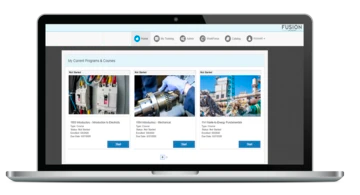Impacts on productivity, safety, and regulatory penalties
One of the best ways to ensure that your facility maintains the highest uptime possible is to complete preventive maintenance at the manufacturer’s recommended intervals. But when production demands make it hard to find time to complete such maintenance, the chance of improper machine performance – or worse, an emergency shutdown – increases.
When machines aren’t performing properly, your team’s morale and safety might suffer. Downtime is costly, but incurring penalties due to unsafe working conditions makes it much more expensive.

Some OSHA penalty fees increased in 2023 to cover current inflation and cost of living expenses, increasing two key penalties:
-Maximum for serious and other-than-serious violations are now $15,625 per violation-Willful and repeated violation maximums increased to $156,259
-Read more in our Q1 2023 Regulatory & Safety Bulletin
In addition, U.S. DOL now allows application of citations that can be applied by-instance, specifically for high gravity violations. With these increased fees and visibility into facility safety published on OSHA’s website for violation amounts over $40k, your facility’s productivity, team’s safety, and overall profitability can be impacted by these citations.
Many of these violations can be avoided when maintenance is completed in a correct and timely manner. However, when maintenance is delayed or completed incorrectly, it can set the stage perfectly for safety violations to occur. Even when the facility remains safe, delayed maintenance can lead to major cost increases on its own due to more frequent shutdowns and other factors.
Drivers of increasing maintenance costs include:
- Inconsistently completed (or incomplete) preventive maintenance, also known as deferred maintenance.
- Replacing the wrong part: a part might be breaking due to another component’s dysfunction.
- Replacing parts to try to find the source of the problem instead of replacing the right part first.
- Incorrect application of troubleshooting theory
Increased OSHA penalties mean that the costs associated with failed inspections or injuries can be higher than ever before, and coupled with these common reasons why industrial maintenance can fail, it’s a recipe for losing productivity and incurring fines. It can also put a damper on morale: when coworkers are injured or lines are down, personnel are not being paid and stress can go up. Increase stress, in turn, can be a cause an increase in sloppiness and make it more likely that team members will ignore or forget safety measures. When manufacturing jobs become stressful or pay is inconsistent, personnel might look for new opportunities.
Ultimately, all of these problems can be reduced through one common denominator: better training. Ensuring your whole team understands how to properly complete maintenance and troubleshooting can prevent many problems that lead to accidents and injuries – and in turn, can reduce excessive penalties and help retain your staff.
TPC offers courses on the critical topics your team needs to understand so they can keep your facility running and your team safe. Our courses are available in several formats:
-Fully online, self-guided learning-Instructor-led training with our real-world-experienced instructor team
-Simulation-based training
Our courses cover most industrial maintenance disciplines, with a focus on comprehensive coverage of topics in these categories:
-Electrical-Mechanical
-HVAC
-Safety (OSHA)
-Plant Management
The best part? A comprehensive training program is usually less expensive than the most common OSHA penalty citations.
Get self-paced OSHA-Authorized safety training.
Check out our online technical skills course catalog.
Learn from our instructor team with these technical skills courses.
— Jess Schmidt






Comments
Sorry, no comments found for this article